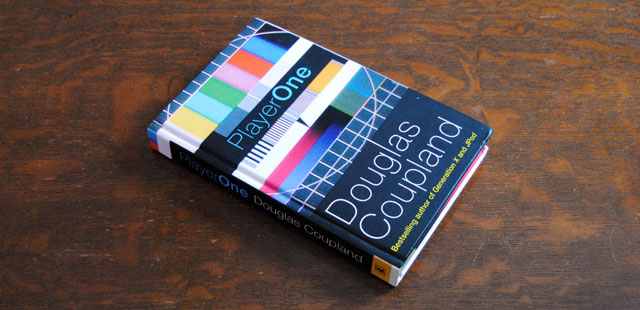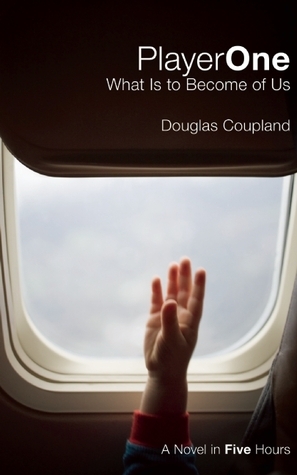
What happens when one of the most inventive novelists of contemporary modern literature writes about the future in the context of new ideas and their future repercussions in a five-chapter book, each representing one hour?
In this case, you get Player One: What Is to Become of Us (The CBC Massey Lectures), which was created for the 2010 lectures.
“Five disparate people are trapped inside an airport cocktail lounge during a global disaster: Karen, a single mother waiting for her online date; Rick, a down-on-his-luck bartender; Luke, a pastor on the run; Rachel, a cool Hitchcockian blonde incapable of true human contact; and finally a mysterious voice known as Player One.”
Similar to his previous novel, Generation A, Douglas Coupland is wrestling with the future based on our limited understanding of the present. Published in 2010, this book’s relevance in today’s post-pandemic world and “new normal” can’t be understated but you have to be open to the acknowledgment that there is a new normal.
In the book, the reference to 9/11 as the before and after of a “new normal” is a comparison that only serves to be eclipsed by the events happening throughout the five chapters of this book. The four people Karen, Rick, Luke, and Rachel are a fairly good cross-section of the idea of randomness.

Unlike some of his other works, this book isn’t really for everyone, and it needs to be taken seriously. There are some big concepts and real quandaries within the pages of Player One that exemplify the struggle to return to “the way things were.” It’s even stranger to read it now, following a global pandemic, and as a result, it may be an even harder concept to work around than the actual fictional global disaster Coupland created.
Without spoilers, at least in Coupland’s fictional disaster, everyone agrees that it’s happening. There’s no denial of the facts, which may be something that has only become a part of daily life more since 2010 when this book was published. It’s unfortunately now part of what makes this a work of fiction.
I would be curious to know how an updated version of Player One would read. At least one or two of the characters would probably, for the sake of realistic balance in a fictional piece, have to ignore the facts for their own ideologies.
Anyway, before I get too far off-topic, Player One is a thought-provoking novel about what happens next. What’s scary about this novel is that while Coupland’s fictional global disaster is scary and could still come to pass, the one we have been through and probably the ones that await us may be even scarier. But it just makes the concepts of “what’s next” and “new normal” more relevant.
Is it possible to read a book about humanity’s totality of existence and where we are and to think about it positively? Perhaps it’s my generally pragmatic outlook that keeps me from seeing the future as limitless and hopeful, but your general outlook will definitely color the way you feel after you put this book down. I can’t imagine it changing minds, just maybe reframing the way you see some things. Keep that in mind if you are interested in the book. It’s an excellent read, and while it’s just not going to change outlooks, perhaps it may change perspective.
Read the Secret File of technical information and quotes from Player One by Douglas Coupland.